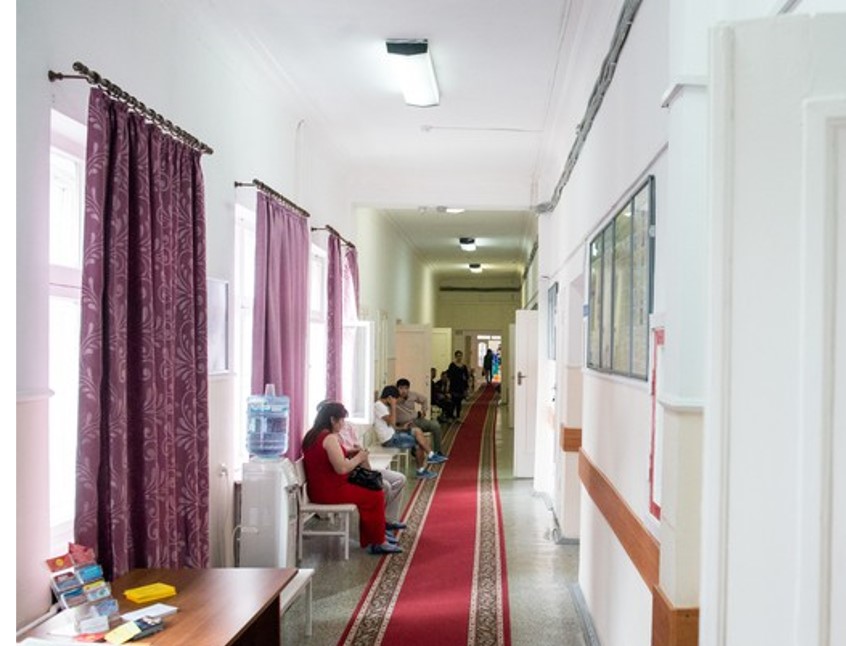How do migrants act when in need of medical care? Here, we explain five main strategies described in a study by Ekaterina Demintseva and Daniel Kashnitsky, investigators from the Institute for Social Policy, HSE University
Russia is one of the most popular and important destinations for labor migrants from ex-Soviet republics, especially low-income Central Asian countries such as Kyrgyzstan, Tajikistan, and Uzbekistan. At the same time, migrants’ life in Russia is associated with limited resources, social isolation, and limited access to healthcare. This becomes even more complicated due to negative attitudes and discrimination toward migrants at public hospitals and clinics.
Ekaterina Demintseva and Daniel Kashnitsky, investigators from the Institute for Social Policy, HSE University, have studied medical infrastructure available for migrants in Moscow, as well as formal and informal strategies migrants use to receive healthcare. The study involved qualitative interviews with 60 labor migrants from Central Asian countries and 23 employees of public and private medical organizations in Moscow, who often work with migrants from Central Asia and represent a kind of custodians for them.
In their work, the investigators focused on labor migrants from Kyrgyzstan and Uzbekistan as the largest groups of migrants in Russia are from these countries. The interviews were conducted at medical institutions or in an informal setting, lasted 10 to 90 minutes. The interviews were mostly in Russian (sometimes with the support of a translator from Kyrgyz or Uzbek), and were transcribed verbatim in Russian.
At the first stage of the study, the investigators interviewed labor migrants 18- to 40-year-old (most prevalent age group) working in retail, services, cleaning, and repair services in Moscow. The second stage involved interviews with doctors, nurses, clinic administrators, pharmacists, as well as informal helpers who provide medical care, consult, accompany, and in general care for migrants from Central Asia.
The study confirmed: although migrants actively participate in the city life, they feel isolated from the society. There is even a special infrastructure in Moscow, created by migrants and for migrants, which includes clinics, cafes, restaurants, and markets.
Analysis of collected responses has led to defining several behavioral strategies which migrants use to solve problems of medical nature.
The first such strategy is called by authors “Healthy migrants”, or “No time and money for doctors”. The idea that migrants are hard-working and healthy people often results in delaying treatment. This strategy may lead to health impairment: migrants do not pay attention to their diseases and let them develop until they need emergency care. Interviewed pharmacists confirmed that many migrants go to a pharmacy for consultations; they consider it a first line of symptomatic relief, and they buy the cheapest medications instead of going to a doctor.
The second strategy involves emergency care. City hospitals regularly admit migrants with acute disorders. They apply for emergency care in case of injury or sudden pain, when they do not see alternative solutions. Emergency care is available for everyone without exceptions, regardless of the legal status and necessary documents, but a foreign citizen may stay in a public hospital for no more than three days. Main reasons for emergency care include occupational incidents in males and pregnancy in females.
Seeking routine care is the third strategy. Main reasons why most migrants do not go to Russian medical institutions include lack of medical insurance and high cost of healthcare services. Migrants from Central Asia go to doctors from their home countries; they have advantages in such institutions such as the understanding of the socioeconomic position of migrants, knowledge of the languages of migrants, and the cultural proximity of the migrants and the doctors in these hospitals.
In Moscow, there are so-called Kyrgyz clinics. These are medical organizations where doctors and other staff are from Kyrgyzstan, and patients are people from Central Asia, primarily, Kyrgyzstan. The popularity of these clinics is based on low costs of treatment and the understanding of social and psychological problems of patients by the personnel.
The fourth and most prevalent strategy is seeking informal medical care. When symptoms appear, migrants look for someone with medical education or skills, among their friends, acquaintances, neighbors, who can give useful contacts, an injection or an infusion or recommend better treatment. For routine care, migrants often go to other migrants who were doctors, nurses, obstetricians in their home country, even if they do not do this job in Russia. This model works as grape vine: important contacts are being passed from one person to another. Sometimes such informal approach may be more structured, when doctors (migrants or Russians) work on volunteer basis, refer patients to colleagues who help with treatment treatments of the migrants.
The last, fifth, strategy is going back home. This option is being used in case of a serious disorder, when a migrant cannot earn a living, or when they need long and expensive treatment or a surgery. Such a decision is associated with additional difficulties and financial losses, and thus is not very prevalent. Experience shows that even in case of serious diseases, some migrants prefer to stay in Russia and seek treatment options here.
Based on the completed study, the authors defined several proposals for working with migrants:
- On the municipal level, a high-quality information campaign is needed, which would provide migrants with knowledge about available medical services, social support and disease prevention.
- In Russian medical institutions, strong antidiscriminative policy should be established, for migrants to not feel excluded due to their ethnicity, nationality, or language skills.
- Medical insurance providing wide access to routine healthcare should be available to migrants.
Dmitry Korenev
Based on: Ekaterina Demintseva, Daniel Kashnitsky, Contextualizing Migrants’ Strategies of Seeking Medical Care in Russia // International Migration 2016, Volume 54, Issue 5, Pages: 29-42
This article was prepared with the support of Oxfam in the Russian Federation
- on photo: A “Kyrgyz clinic” in the Mariyna Rosha district of Moscow
